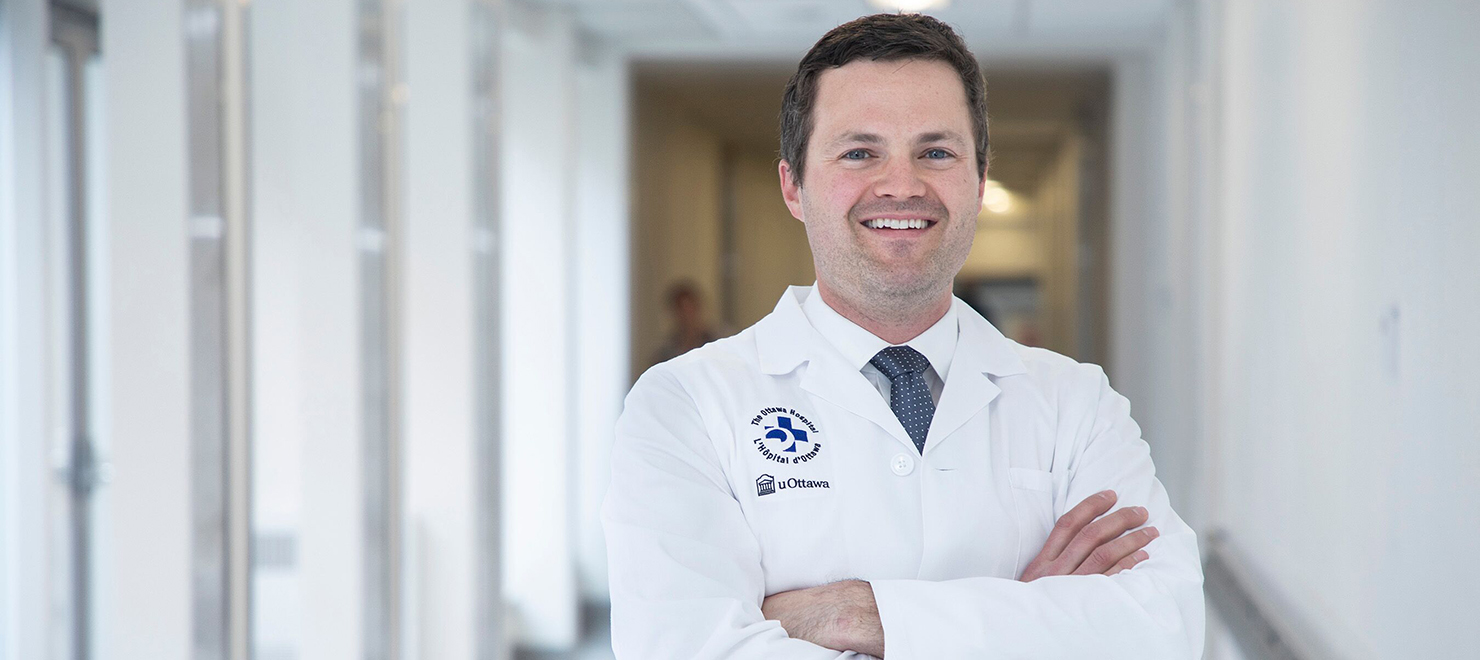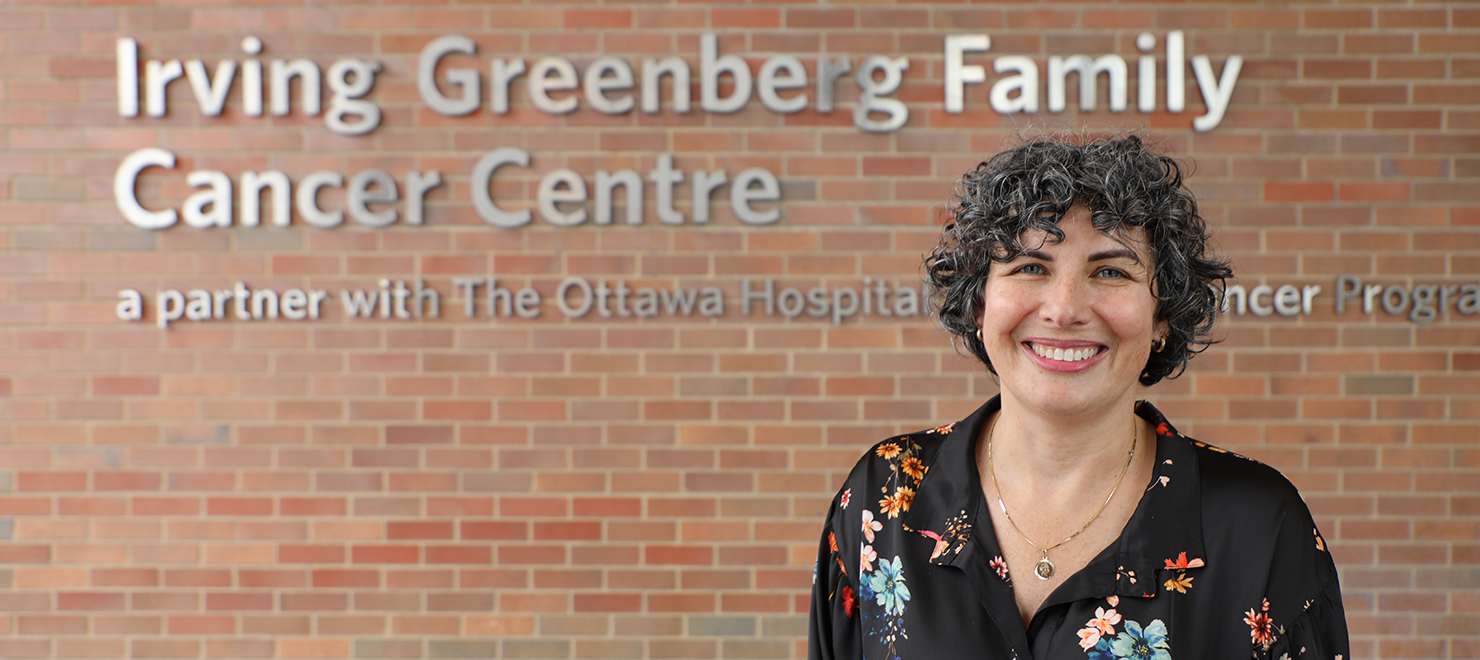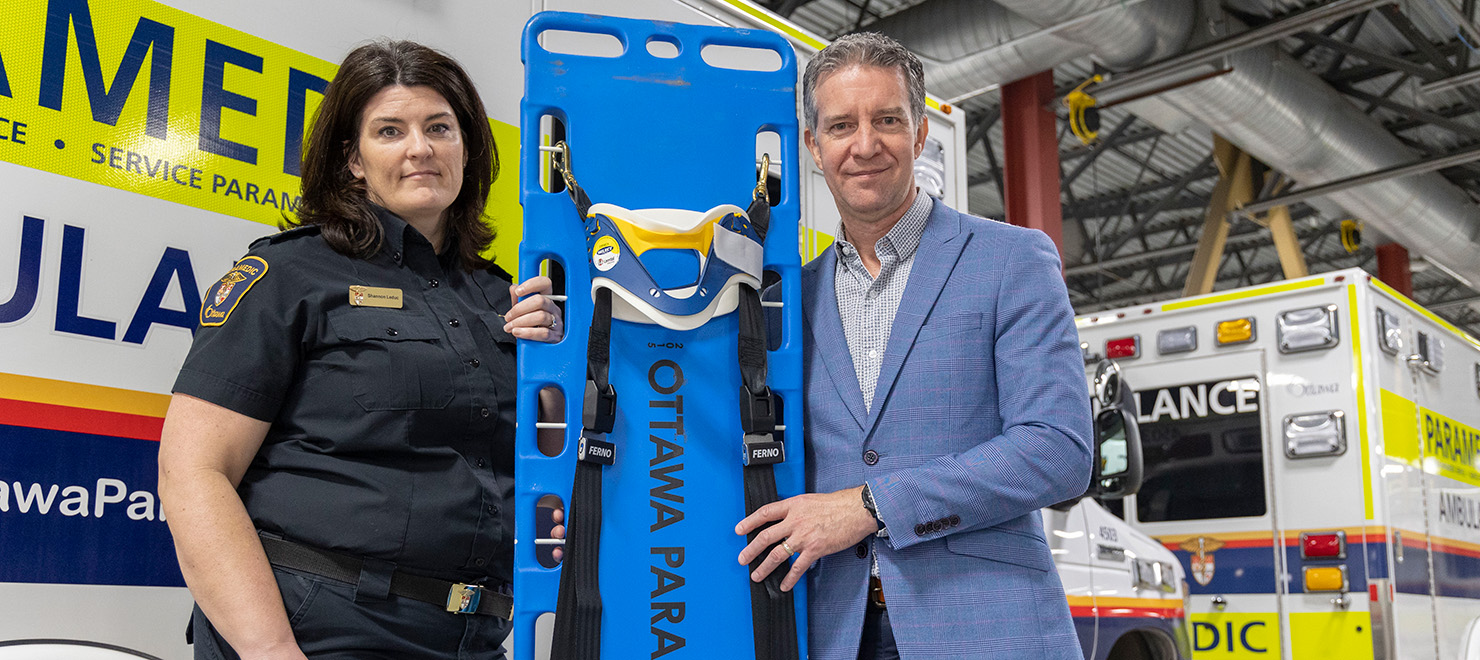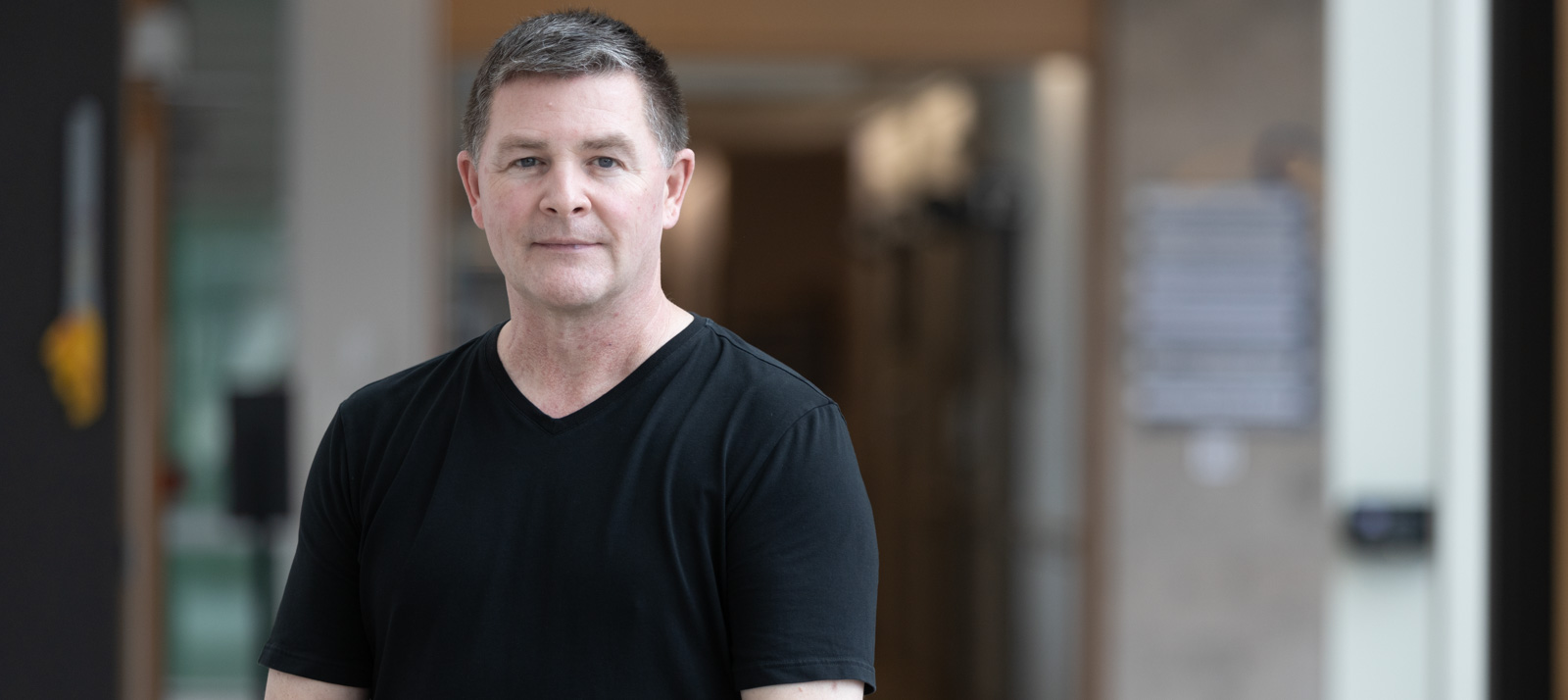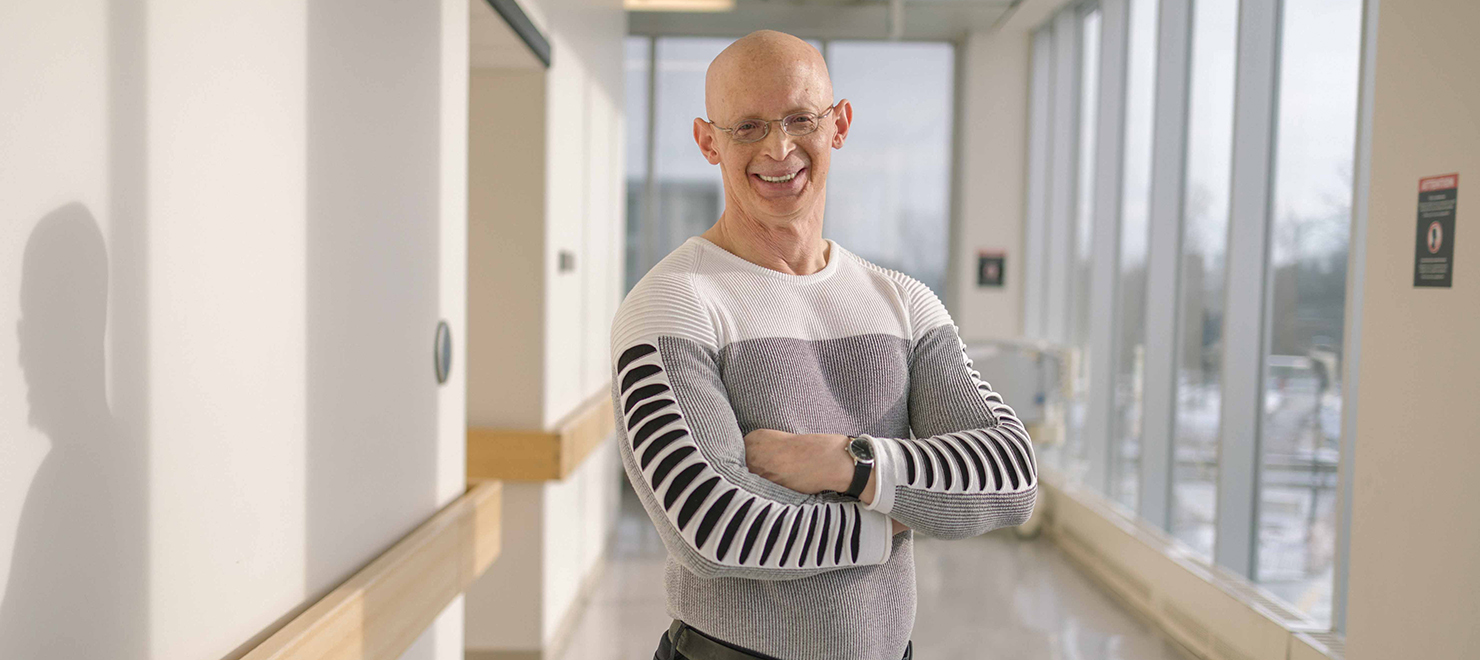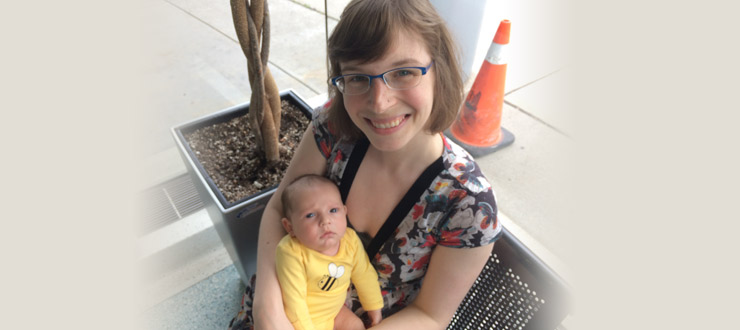
Midwife Elizabeth Fraser wanted to know how to reduce her risk of blood clots during pregnancy, and inspired a study that could help others with her rare condition.
Elizabeth Fraser jokes that she had one of the world’s most-planned pregnancies. Six months before she became pregnant, the midwife sat down with experts at The Ottawa Hospital to figure out how to reduce her risk of potentially dangerous blood clots.
Pregnant women are at higher risk of blood clots because their bodies are primed to stop the bleeding when they give birth. But Fraser also has a rare condition called essential thrombocythemia (ET) where her body produces too many of the cells that form blood clots.
To find out what she should do to reduce her risk of clots, she asked to see Dr. Marc Rodger, one of the world’s leading experts on blood clots in pregnancy.
“I’ve just had tremendous feedback from patients who have seen him, about how skilled and compassionate he is,” said Fraser.
However, Dr. Rodger didn’t know what to recommend because guidelines for pregnant women with ET did not exist. To solve this, Dr. Rodger’s colleague Dr. Leslie Skeith mined the scientific publications for data on more than 500 pregnant women with ET. The doctors’ meta-analysis, published in the journal Blood, showed that the risk of blood clots in this population was between 1.3 and 4.3 percent before birth, and between 1.2 and 9.5 percent after birth.
“We recommend that pregnant women who have a risk of blood clots over three percent should take blood thinners,” said Dr. Skeith, a thrombosis fellow and associate scientist at The Ottawa Hospital. “So in most cases, women with ET do not need to take blood thinners during pregnancy, but would likely need to take them after the baby is born. However, we recognize that some patients may choose to take blood thinners for their entire pregnancy.”
Dr. Skeith and Dr. Rodger calculated that Fraser’s risk of a blood clot during her pregnancy was between two and three percent.
“Because my risk level was in the middle, they basically said it was my choice,” said Fraser, who took blood thinners for her entire pregnancy and after the baby was born. “Getting information that was tailored to my experience was wonderful.”
Today Fraser is blood clot free and the mother of a healthy baby.
“I had a whole team of people that helped me get this baby into the world,” said Fraser. “I’ve been nothing but delighted with the care I’ve received from my whole team of professionals at The Ottawa Hospital.”

Support patient care and research at
The Ottawa Hospital
You might also like…
Do you have a surgery coming up? Here are five “prehab” tips to help you recover faster
You’ve probably heard about rehabilitation, but what about “prehabilitation”? Prehab is all about getting your body and mind in top shape before surgery so you can enjoy a smoother, quicker recovery. Discover five essential prehab strategies from researcher Dr. Daniel McIsaac.
By thinking differently, this research team is improving the lives of people with cancer
Taking a different approach to clinical trials, the REthinking Clinical Trials (REaCT) program aims to answer some of the most important and practical questions that affect both patients with cancer and our health-care system. Find out what sets REaCT apart and makes the program so special to participants like Beth.
Does this backboard look comfortable to you?
Imagine this: You’re flat on your back, strapped tight to a rigid backboard, unable to move at all. Fortunately, this is no longer the reality for most low-risk trauma patients when they’re brought to hospital in our province. Find out how researchers at The Ottawa Hospital teamed up with paramedics across Ontario to make the journey a lot more comfortable.
Ever have a tough time making a medical decision? These tools can help you
When faced with a medical condition, there may not be one clear path forward — but we have something to help you with that. The Ottawa Hospital is home to the largest collection of decision aids in the world, covering everything from various cancers to depression to allergies.
Ask Masi: A new support tool for front-line perinatal care providers
Parents will often describe welcoming a new child as one of the happiest times of their lives. But physicians, midwives, nurses and others on the front lines will tell you that this is not always the case for their patients. A new service for care providers called Ask Masi is here to help.
New Research Chair in Gay Men’s Health is setting out to break down barriers to care
As both a researcher and a gay man, Dr. Paul MacPherson knows all too well the stigma that gay men often face in the health-care system. Now, as the Clinical Research Chair in Gay Men’s Health at The Ottawa Hospital and the University of Ottawa, he’s on a mission to make quality health care more accessible to this often overlooked patient population.


 To reset, hold the Ctrl key, then press 0.
To reset, hold the Ctrl key, then press 0.
